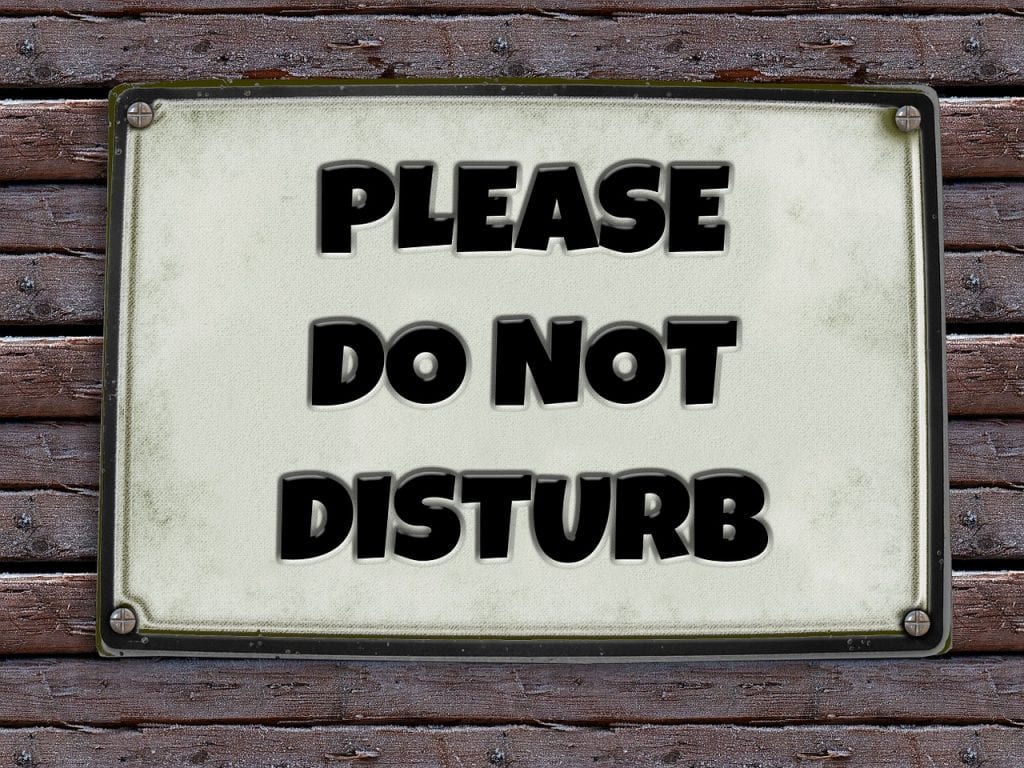STRESS. The six letter villain that lurks around nearly every corner, if you let it. When left unchecked stress can wreak havoc on your work and personal life.
Stress costs employers an average of $300 billion a year in stress-related health care and missed work. These are direct costs of stress. The indirect costs of stress can be just as damaging to business.
According to a 2013 Gallup poll, 87 percent of workers worldwide are emotionally disconnected from their workplaces (a byproduct of stress) and less likely to be productive.
Workplace stress can cause a disconnect between an employee, and their job and employer. This emotional disconnect can lead to a decrease in engagement, satisfaction, and, ultimately, productivity.

Many people understand that stress is bad for business. Still, work-related stress is so prominent that 55 percent of workers consider their jobs more stressful than financial and relationship problems.
This statistic is (should be!) unacceptable. Teaching your employees to deal with stress at work is easy, inexpensive, and helps both parties. There is no excuse for letting your staff suffer from the effects of stress.
Here are 10 tips on how to deal with stress at work.
1. Identify Triggers
Help your staff identify their personal stress triggers. Every individual’s different personality, experiences, and other characteristics influence the way they respond to and cope with stress.
What is distressing to one team member, may be a nonfactor to another. Have employees record situations, events, and people who cause negative responses. Record these reactions for at least one to two weeks.

Evaluate each of these situations and their relation to that individual’s stress inventory. This evaluation will help your employees to discover what causes them the most amount of stress, which will aid them in combating stress in the future.
2. Identify Self-imposed Stress
It is a lot easier for people to recognize stress caused by outside influences, than the stress that results from within. Train your workers to stop self-imposing stress by building their self-confidence rather than seeking other’s approval.
Becoming preoccupied with what others think of you, which you can’t control, can significantly increase the amount of stress you feel at work.
3. Improve Time Management
There are several steps you can take to improve your time management skills and conversely reduce your workplace stress. Get employees to plan, prioritize, and act (rather than react).
A common cause of stress is feeling that what is going on around you is out of your control. Advise employees to recognize what aspects of a situation they can control, and what they can’t.

Get your staff to focus on making the percent they can control, the best it can possibly be. Then, teach them to let go of the rest. If it is beyond your control, then worrying about it can have nothing but negative consequences.
Teach employees to:
— Create to-do lists
— Schedule meetings
— Break projects into small steps
— Delegate responsibilities
— Take small breaks
— Prioritize work
Employees should be planning ahead to prioritize what they need to get done first, and what can wait. Their to-do lists should focus on projects that will have the most impact for the company, and align best with their personal goals and strengths.
Train employees to build periodic gaps in their schedule to rest and reflect upon themselves and their day. A gap in the torrent of information that flows through your head while at work, allows you to interrupt stress reactions that may be building up. A break allows you to collect your thoughts and make adjustments.
4. Use Time Off
Encourage your employees to utilize ALL of the paid time off they are given. Your company should foster a culture that actively promotes the use of employees’ paid time off. These vacation or personal days lead to:
— Improved productivity
— Increased engagement
— Better recruitment
— Boosted creativity
— Growth in retention
Taking time to recharge helps to avoid burnout and lets employees restore and replenish themselves from all the accumulated workplace stress.
Learn more about the positive effects time off has for your employees and business.
5. Gain/Change Perspective
Your perspective of stressful office events is just that; your’s. Every individual interprets a set of facts differently, which results in different perspectives. What was agonizing to you, was uneventful to another.
If possible, show workers how they can step back, and view events through a more objective lens. Employees should be thinking about issues from all angles, not just their own. When necessary, have employees talk to someone who is close to them.

Chatting with a friend, family member, or even trained professional gives that employee exposure to another viewpoint, which can help change their perspective. Talking to someone close to you also allows individuals to vent and relieve pent-up stress.
Encourage employees to change perspectives through actions that get them out of their regular routine. Have them go for a walk, take a hike with a friend, write a book, etc. Push your staff to do something new that takes them out of their stressed-out frame of mind.
6. Personalize Workspaces
Your workspace is a reflection of your mood and condition. Make sure employees do everything to make their workplace as comfortable and familiar as it can be. Your space should be a comfortable place where you feel well, and less stressed.
Some things you can do to enhance your workspace include:
— Get rid of clutter
— Improve lighting
— Add motivational quotes/posters
— Have pictures of friends/family
— Bring personal items like your favorite cup, a plant, etc.
7. Reduce Interruptions
Train employees to avoid and, if possible, eliminate interruptions. Workers can do well to avoid interruptions by blocking out calendar dates, closing their door when they need focus, and only answering emails during certain times.
These practices train both yourself and those around you not to interrupt. While it is impossible to control all interruptions completely, it is possible to control how you react to interruptions when they inevitably occur.

Something all employees need to understand, in order to control their reactions to interruptions, is how and when to say “No.” Staff members need to know how to say “No” to their colleagues and even their supervisors.
Don’t let employees put extra pressure and stress on themselves by not wanting to offend their coworkers and say “No.” Constantly saying yes can add to your workload, or force you to miss deadlines and other negative consequences. All of these consequences result in an increased amount of stress.
8. Learn Calming Techniques
Teach employees different calming techniques that they can use when feeling stressed at the office. Here are several calming techniques that can be implemented easily and quickly by an individual:
— Listening to calming music
— Deep breathing exercises
— Stretching or Yoga
— Meditating
9. Physical Health
Most of the previous techniques focus on emotional or mental health. Both of these are vital to stress management; however, it is just as important that you take care of your physical health. Eating right, sleeping well, and exercising are all critical to stress management.
When you eat poorly, you stress your body out. What you eat can have an impact on your condition and mood. Try eating frequent, healthy meals. These will keep you energized and focused throughout the day, and help you to avoid mood swings.

Make sure you are getting the proper amount of sleep each night. According to the CDC, over 60 million Americans do not get enough sleep, which your body needs for recovery. A lack of sleep causes you to become even more stressed. Some tips to improve sleep are:
— Avoid stressful situations and stimulating activity before bedtime
— Stay no less than eight hours in bed
— Turn off all screens
— Read before getting into bed
— Do deep breathing exercises
Also, be sure that you are getting the proper amount of exercise. Everyone should aim to get at least 30 minutes of physical activity per day.
Exercise stimulates endorphin secretion, which helps to fight off the negative effects of stress. If you are feeling stressed or want to avoid being stressed, make sure you exercise regularly. If you have a favorite activity, whether it is basketball, tennis, jogging, swimming, do it either before or after work.
10. Get Support
Out of those who feel stressed or depressed because of work, only 5 percent admit their struggles. It is crucial to accept how you feel and tell someone that you suffer from work-related stress.

Employees should feel comfortable and safe talking to a colleague, their supervisor, or the HR leader to get assistance with their struggle. Make sure that your staff is aware of the resources available through the company such as:
— Employee assistance program (EAP)
— Online information
— Counseling
— Referrals to mental health professionals
Stress is not an issue that should be ignored. It will not go away if you focus on your work and try to disregard what is affecting you. Employees need to know how to deal with stress at work, and how to get help when they need it.
The Wrap
Workplace stress is an issue that needs to be addressed by both employer and employee. Both parties need to feel safe to engage in open discussions about the topic, to resolve any problems that may be occurring.
Work-related stress can cost an employer, thousands to millions of dollars every year. Lessen the negative impact of stress by teaching your staff these 10 tips on how to deal with stress at work.
The positive effects of improved stress management cannot be stressed enough.

